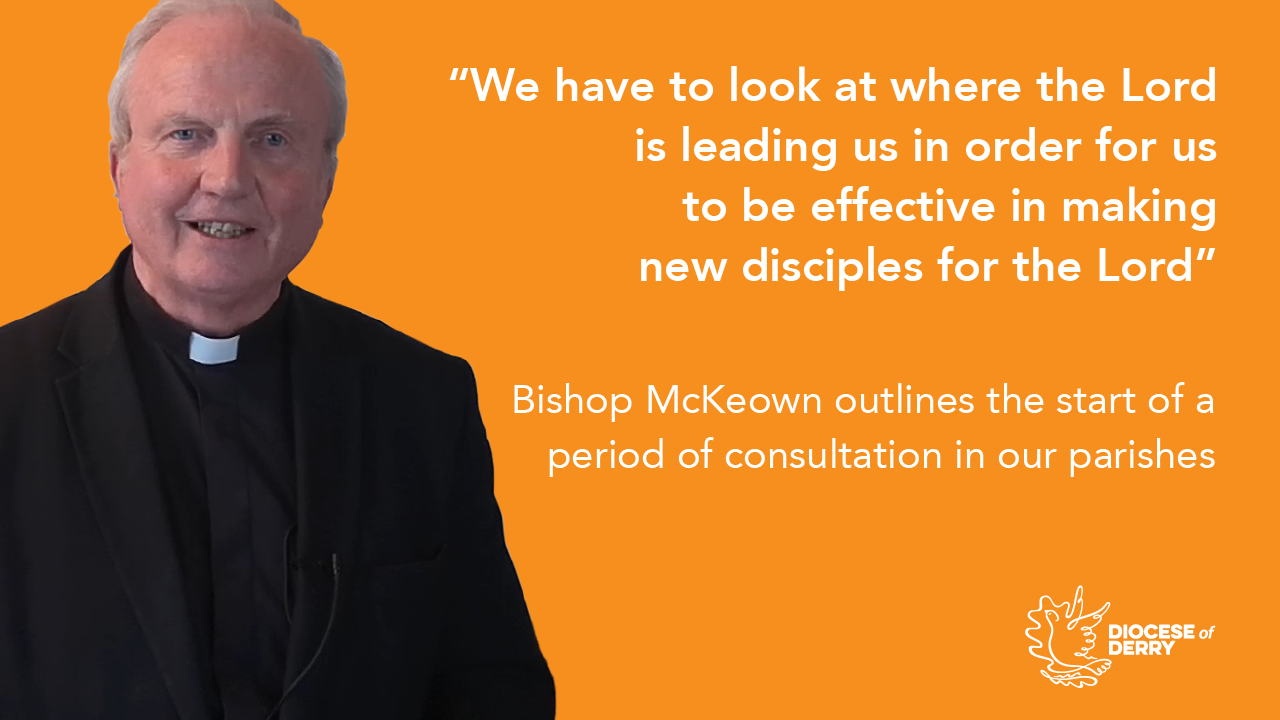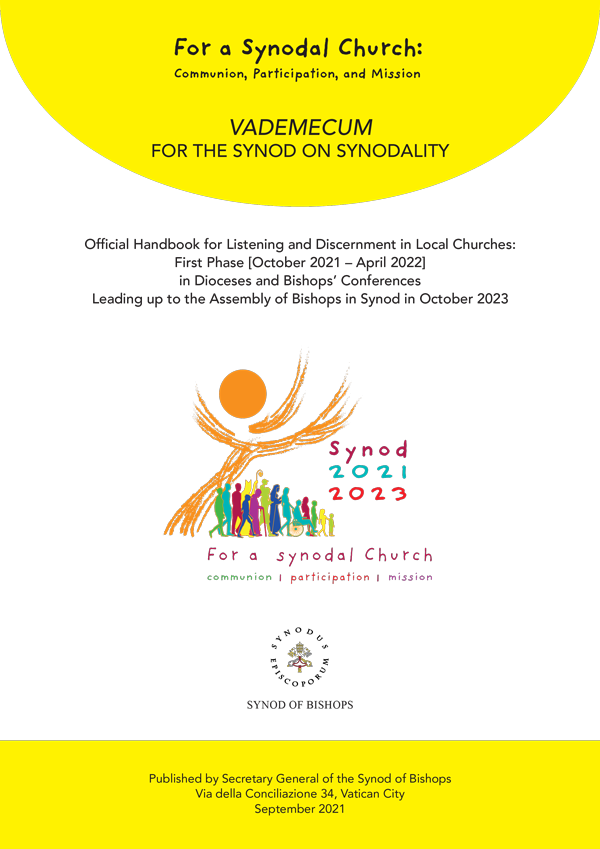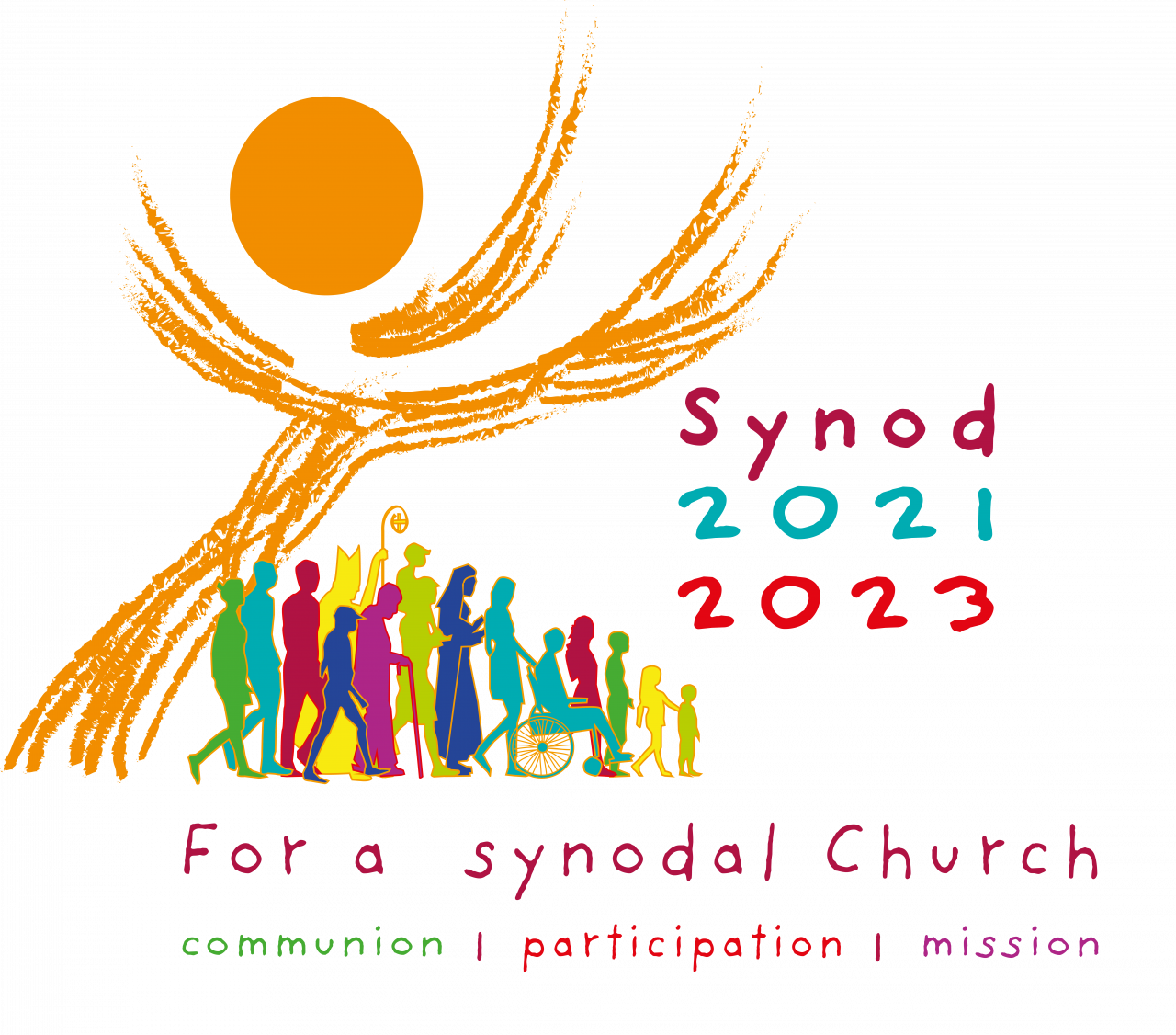Contact
Diocesan Offices
St Eugene’s Cathedral
Francis Street, Derry
BT48 9AP
Tel: 028 7126 2302
Pope Francis is inviting Catholics everywhere to re-learn the ways of being church together, to create spaces of encounter and mutual listening that incorporate the gifts of all the baptized as we face the many challenges of renewing the life of the church for our time.
The sensus fidei (sense of the faith) of the whole People of God is sought on this question. Since each diocese has a unique context, its path for seeking, promoting, and reaping the fruits of this sensus fidei will be unique. Overall, the Synod guidelines remind us that:
Planning for such a process is already the beginning of synodal conversion! Below are some suggested points you can use in discerning the path for your parish.
Diocese of Derry Synod notice: Training for parish Synod facilitation will begin in early January. Parish listening sessions will begin on Sunday, 16 January through to Sunday, 13 February 2022.
The following are some tools for reflecting, sharing, and responding to the questions of the Synod. Some of these tools are particularly suitable for children, youth, and people who prefer approaches that are simple and easy to relate to.
One's life story. People can be invited to tell their story, their view of faith, the way they have sought to take their place in the Church. During the diocesan or national synthesis, care should be taken not to read these stories as simple testimonies, but to hear what paths they open up for the local churches.
A text that drives exchanges. We can invite a small group of people to write a joint text; then other groups of people react to this text and comment on it from their own daily lives. This way of doing things can be applied to hearing one another's life stories, which can be shared with groups of other people. All these words can also open the eyes of other Christians on the mission of the Church and its capacity to "reach everyone."
Finding the right words. Participants can be invited to say what the Church evokes in them, or to name the words that designate what it takes to "walk together with Jesus" (a possible translation of synodality), and then which words are opposed to "walking together"; they can then be invited to explain why they evoked this or that word. The participants can then choose which words are the most significant and the most apt to convey the group's message.
Communicating through images. Presented with various images, people are invited to find those that best capture what walking together in the Church means to them. Participants can then share why they chose that particular image. On the basis of these exchanges, a joint text can be written.
An individual or shared artistic creation. People are invited to draw an image of the Church in which they walk together, and they are asked to comment on their drawing. People can also make an artistic creation together, as a way of visually representing the Church or their place in it. In any case, once the work has been created, participants are invited to share about what they have created; their comments can then be transmitted as well as their creative works.
Writing together. Participants are invited to write a story, a poem, a prayer, a psalm, or a song on the theme of "walking together with Jesus" or "walking together in the Church." This piece of writing may be intended to update selected passages from the Gospels or the Acts of the Apostles. What they write can be passed on as it is. It can also be proclaimed during synodal celebrations (for example, if it is a song, it can become a dance for the synodal celebration).
Acting it out. A group of participants can write a short play that expresses what it means to "walk together" in the Church, why it is important, why it is difficult, etc. This story can then be acted out and performed at a Synodal assembly.
Gospel sharing. The Word of God inspires and enlightens our journey together, giving us food to share with one another on the way. Participants are invited to comment on the attitudes of the characters and to react to them; they may be asked if a particular gesture or word of Jesus reminds them of, or sheds light on, something in their daily lives. We can then look for how a particular Gospel passage renews our way of living in the Church. For example, we can read Mk 10:46-52, observing the attitude of the different characters, what it evokes of the Church as we know it, and then how Jesus allows the excluded Bartimaeus to walk forward with everyone. We can likewise pray over Luke 24:13-35, seeing Jesus transform the disciples'
disappointment into missionary joy and dynamism on the road to Emmaus, as he made their hearts burn within them, walking with them on the way.



When you subscribe to the blog, we will send you an e-mail when there are new updates on the site so you wouldn't miss them.
Diocesan Offices
St Eugene’s Cathedral
Francis Street, Derry
BT48 9AP
Tel: 028 7126 2302